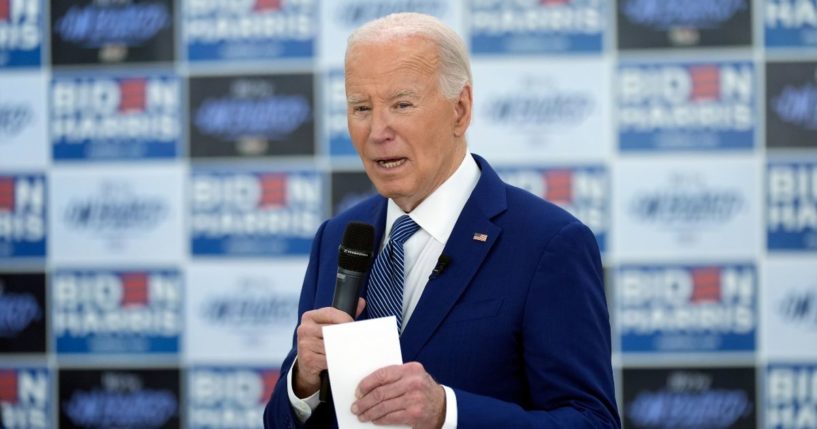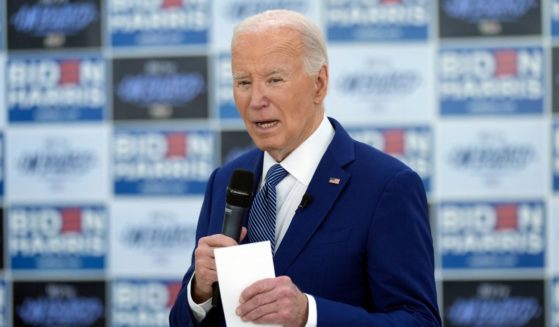Get the latest news delivered right to your email.
2024 Election
Top Stories
Advertisement
Massive Upgrade: Chick-fil-A Set to Take Over and Demolish a Seedy Strip Club to Make Way for a New Restaurant
Since 1984, the address for a proposed Chick-fil-A in Portland has been the home of a strip club called The Venue Gentlemen’s Club.
By Johnathan Jones
April 24, 2024
Comment
MoreShare
Mike Rowe Adds Insult to Injury for Embattled Ivy League Schools with Pointed Comparison to Trade Schools
"It’s simply mind-boggling that the president of this university would rather consign her students to another crucible of remote learning."
By George C. Upper III
April 24, 2024
Comment
MoreShare
College Football Legend and His School Are Getting the Heisman Trophy Back: Report
Not even O.J. Simpson lost his Heisman Trophy after he was accused but later cleared of a 1994 double murder.
By Johnathan Jones
April 24, 2024
Comment
MoreShare
Audiences Crave Older Movies: Theatrical Re-Release Trend Gains Steam Worldwide
Film distribution companies are re-releasing popular classics in order to bring audiences back to movie theaters.
By Michael Austin
April 24, 2024
Comment
MoreShare
Higher Brainwashing
For more A.F. Branco cartoons, go to WesternJournal.com/cartoons.
Biden to Give Commencement Address at College, But Faculty Backlash Is Already Causing Problems: Report
Biden's attempts to play both sides of the Israel-Hamas conflict might turn his upcoming commencement address into a disaster.
By Allison Anton
April 23, 2024
Comment
MoreShare
Nancy Pelosi Embarrasses US While Traveling Abroad with Extremely Foolish Attempt to Interfere with Israeli Politics
If a powerful foreign leader said the same thing about President Joe Biden, the Democrats would be up in arms.
By Allison Anton
April 23, 2024
Comment
MoreShare
'This Is Vile': Biden Comes Under Fire for Invoking Jesus While Promoting Abortion
The Apostle Paul wrote 2,000 years ago that Christians must pray for their political leaders. This is a great example of why.
By George C. Upper III
April 24, 2024
Comment
MoreShare
Advertisement
Biden Breaking the Ten Commandments: Part Four - Bidenomics Subverts the Sabbath
Biden is upsetting the balance of rest and work ordered by God — and Americans are paying the price economically and spiritually.
Comment
MoreShare
Former Military Chaplain Talks Becoming Battle-Ready to Serve in God's End-Times Army
U.S. Army Col. (Ret.) David Giammona believes the world is entering the end times, and "the Lord wants us to work even harder."
Comment
MoreShare
Interview: Jeremy Carl Sounds the Alarm on 'How Anti-White Racism Is Tearing America Apart'
In a new book, Carl asserts that if there is anything resembling systematic racism in America today, it is directed at the white majority.
Comment
MoreShare
Advertisement



































